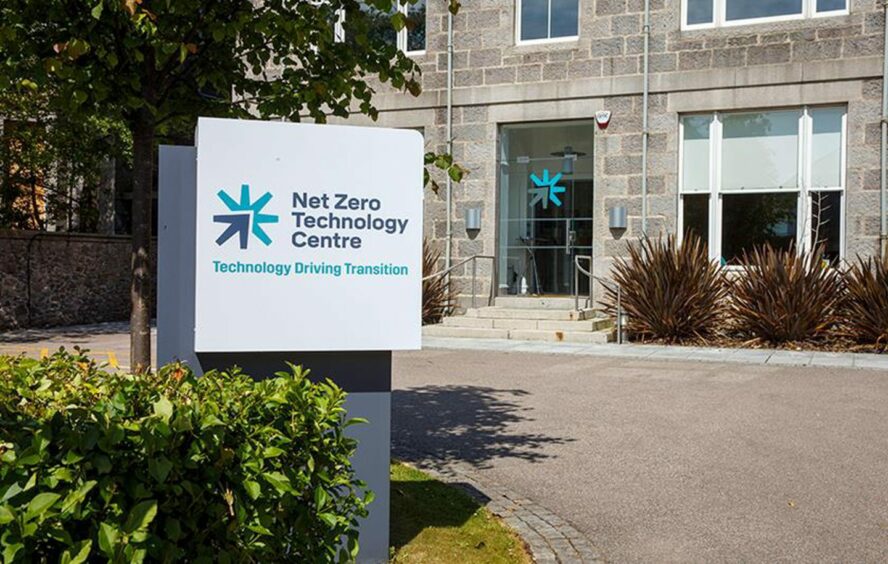
NZTC has launched ‘Technology Without Borders’ – a new initiative aimed at bridging the energy technology gap between nations in the Global North and South.
Officially launched at COP28 in Dubai, where the Net Zero Technology Centre (NZTC) is attending as part of the Scottish delegation, the initiative would see similar agencies from across the world work together with local partners to co-develop technologies that can aid the transition to net zero, particularly in the Global South.
It aims to replicate innovation successes achieved in the UK by applying similar principles to solve energy and industrial decarbonisation challenges across the world, while also building local skills, expertise, and in-country supply chains.
Speaking with Energy Voice from Dubai, NZTC chief technology officer Luca Corradi said Centre personnel had attended previous COPs, including Glasgow in 2021, but this year’s focus on equitable transition had spurred further thinking around how it could enable progress.
“It made us realise that we were mostly – not exclusively but mostly – speaking between the north of the world. And we don’t get to net zero or solve the issue of climate change by focusing on developed economies only.
“So we looked at what [can we do to help] the global south, which not only has the challenge of achieving their national determined contributions to get to net zero – at the same time they have the challenge of increasing access to energy, affordable energy to grow their economy.”
Global hub model
Non-profit NZTC was created in 2017 as part of the Aberdeen City Region Deal, with £180 million of UK and Scottish Government funding. It has since leveraged around $300m from industry to deliver over 200 technology projects, and an associated $20bn in potential gross value added (GVA) for the local economy.
It hopes that a similar blueprint could be replicated via the TWB initiative, using various collaborative models depending on the context of local partners and their energy challenges.
“Technology Without Borders is a brand or an umbrella for a programme that can take different shapes based on different contexts,” Mr Corradi explained.
“Ideally we will look to create a global hub, where we can contribute…and the other centres can then work together with the local institutions.”
These groups would establish which technologies are most applicable and viable in their regions from both a technical and skills perspective and help develop solutions, while ensuring that knowledge, IP and skills and the wider supply chain stay in the country of origin.
While NZTC can offer North Sea experience, the larger network will be able to draw on a wider pool of expertise.
“We’re strong in some technologies – hydrogen, CCUS, floating offshore wind and of course oil and gas decarbonisation technologies – we’re not so strong in solar.
“The Australians are, and the Brazilians are strong in biofuels and so there there’s a number of sets of skills that the various centres can provide and transfer or help develop,” he explained.
This “targeted approach” would then prioritise projects which can make an impact on emissions reduction at scale, and tackle specific locational challenges to enable people to build local technology value chains.
Mr Corradi said solutions at various technology readiness levels (or TRLs) would be considered, though acknowledged the need to focus on solutions that are “rapidly deployable” rather than “moonshot” ideas.
Coalition building
Backed by a mixture of “new and existing funds” NZTC says a pipeline of bankable projects is already being developed with partners in the Global South, targeting five key projects in 2024 and rapidly scaling in consecutive years.
However, it is also using the event to call for further international financial, industrial and technology partners to join, during three presentations across various conference zones.
Mr Corradi says six technology centres are on board with the scheme, including Australia’s CSIRO, South Africa’s CSIR and Japan’s JSAIT, though there are hopes more will join in the wake of the summit
“There is already a coalition of the willing that are keen to cooperate in this front and that is basically the concept that we will present in the next few days,” he explained.
Welcoming the launch, Scottish cabinet secretary for transport, net zero and just transition Màiri McAllan said: “COP28 must listen to the voices of the Global South and those affected most by climate change. That is why we welcome the launch of the Technology Without Borders initiative, which follows the Scottish Government’s £90 million Aberdeen City Region Deal investment in the Centre.
“Their work is vital to helping address the injustice at the heart of climate change by supporting those communities which are suffering the most but have done the least to cause the climate emergency.”
UK Government Minister for Scotland Malcolm Offord added: “Technology Without Borders is a fantastic initiative that will deliver innovative and affordable solutions through information sharing to help secure the future prosperity of the energy sector and achieve our much-needed net zero goals.
“I encourage all partners to consider joining the programme.”
 © Supplied by NZTC
© Supplied by NZTC